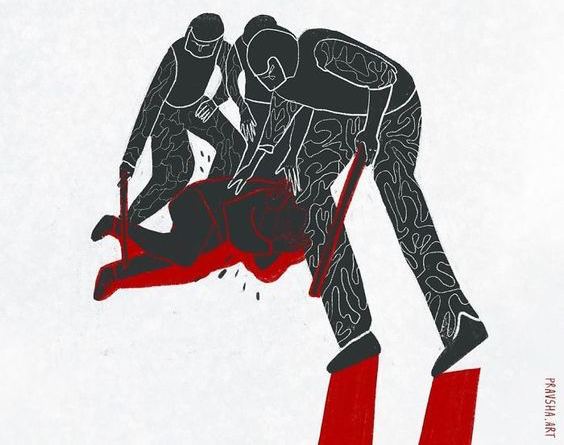Belarus index on torture: authorities deliberately deepen the human rights crisis Document
The Civic Solidarity Platform's Working Group on the Fight Against Torture presented its third Index on Torture. The 2021 Index on Torture was measured in seven countries of the OSCE region: Armenia, Belarus, Kazakhstan, Kyrgyzstan, Moldova, Russia, and Ukraine.
In 2020, experts of two Working Group members, the Public Verdict Foundation and the Association of Ukrainian Human Rights Monitors on Law Enforcement, developed the Index and conducted the first pilot measurement in eight countries of the OSCE region using their 2019 data. The Index was calculated for each country based on measurements reflecting the State's performance in areas such as torture response mechanism, judicial review, statutory prohibition of torture in domestic legislation, procedural guarantees designed to prevent the use of torture, torture prevention instruments in place, and whether the State has fully ratified and implemented the international standards on the prohibition of torture.
The summary data above reflect both positive and negative trends. As before, Belarus and Russia demonstrate the worst performance of all countries observed.
The 2021 measurement reveals a general trend across the Index countries – except Russia and Belarus – towards better responsiveness to inquiries about statistical data as well as the more consistent open-access publication of such data online.
In early 2022, the situation in a number of countries covered by the Index changed drastically, primarily due to Russia's military aggression against Ukraine, affecting the entire region, and the January 2022 protests in Kazakhstan. The Working Group finds it important to supplement the 2021 Index with brief status reports for each country to discuss the current situation as it relates to the key aspects of the prohibition of torture and to outline the main challenges arising in 2022 that have implications for the country's ability to enforce the ban on torture.
Working Group members from the following countries contributed to the Index preparation:
- Promo-LEX Association, Moldova
- Association of Ukrainian Human Rights Monitors on Law Enforcement, Ukraine
- Helsinki Citizens' Assembly-Vanadzor, Armenia
- Voice of Freedom, Kyrgyzstan
- Crew against Torture, Russia
- International Bureau for Human Rights and Rule of Law, Kazakhstan
- Human Rights Movement Bir Duino, Kyrgyzstan
- Human Rights Center Viasna, Belarus
- Kadir Kassiyet, Kazakhstan
- Public Verdict Foundation, Russia
Viasna experts contributed with a country report on Belarus.
They note that by early 2022, the sociopolitical situation in Belarus had been shaped by a profound human rights crisis. Starting after the August 2020 presidential elections, systematic and blatant repression against supporters of democratic reforms continues.
The Belarusian authorities deliberately act to deepen the human rights crisis and to suppress any public activity not only to strengthen and maintain their own power but also to create conditions for Russian troops' presence in Belarus and for the use of Belarusian territory as a springboard for military operations.
The situation with human rights, including the prohibition of torture and other forms of ill-treatment, has significantly deteriorated and shows no tendency towards improvement such as any scaling down of repression, let alone any support of initiatives and mechanisms to prevent torture.
Belarus. Key points
- The human rights crisis in Belarus has led to an unprecedented number of criminal prosecutions against protesters.
- The authorities’ manifest disregard for the law has resulted in a legal crisis. Torture and ill-treatment of detainees are widespread.
- Persons arrested on administrative charges are detained in inhuman conditions, without bedding and essentials, in overcrowded cells, where they risk contracting COVID-19 and parasitic diseases.
- Many detainees get arbitrarily accused of disciplinary offenses and transferred to higher-security prisons, with their sentences extended.
- Without legal grounds for restricting their publicity of proceedings, many trials are nevertheless closed to the public either officially or effectively (by being held inside prisons or police departments).
- Lawyers continue to come under attack for practicing their profession, and the already excessive dependence of bar associations on the Ministry of Justice has further increased. All human rights organizations have been liquidated. A total of more than 700 NGOs have been dissolved or are in the process of dissolution.
- The end-February 2022 protests against the referendum on changing the Constitution and against the military aggression of the Russian Federation using the Belarusian territory and its military and transport infrastructure, were brutally suppressed by the authorities, and many protesters were tortured.
- The authorities have not investigated any of the deaths caused by the suppression of protests, torture, and ill-treatment in correctional colonies.


















